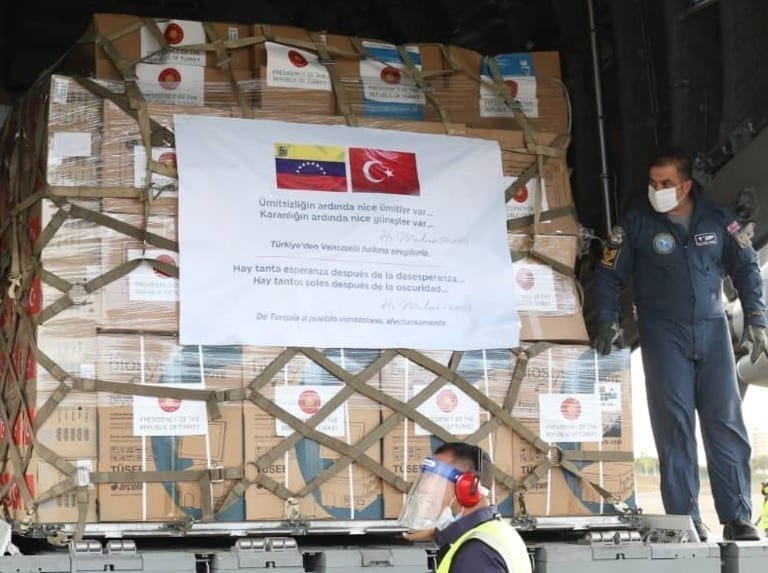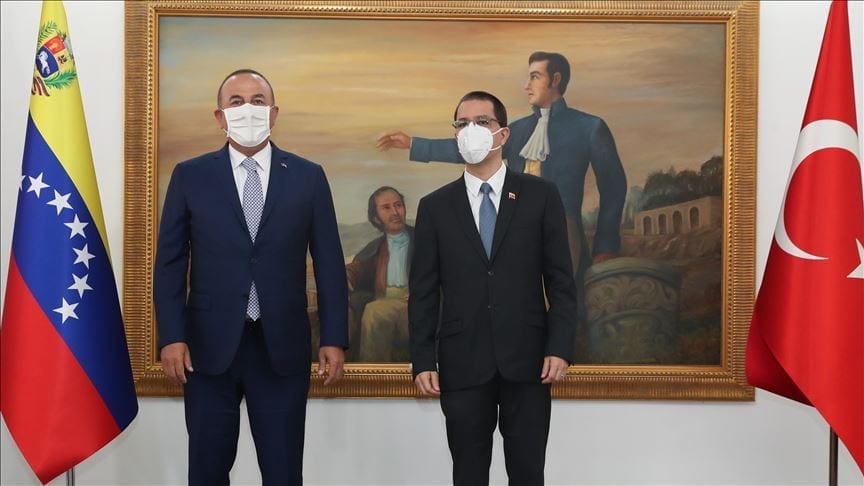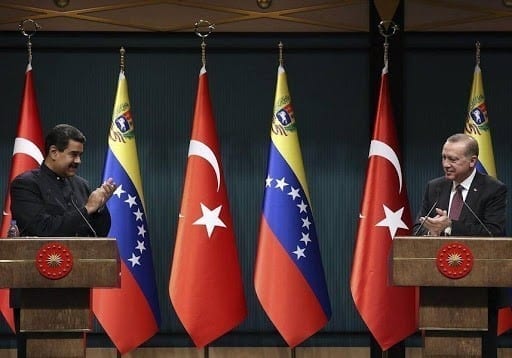The White House administration is exploring the possibility of introducing new sanctions against Venezuela. The new “package” of restrictions may affect European and Asian companies that do business with the Venezuelan oil and gas sector. Against this background, the cooperation between Caracas and Ankara begins to gain momentum. How is the interaction between Venezuela and Turkey developing? What promising projects can be expected from the Turkish-Venezuelan alliance?
Under pressure from the White House, Venezuela has to look for new partners, as well as strengthen alliances with those countries with which ties have already been built. If new sanctions are introduced, they will affect transactions with crude oil and petroleum products, which the official Caracas can still conclude with external partners. In addition, and without another pressure from Washington, the socio-economic crisis in which Venezuela has existed in recent years is very deep.
According to the latest data from a survey on living conditions (Spanish – Encuesta Nacional de Condiciones de Vida de la Población Venezolana, Encovi), conducted every year by the Andrés Bello Catholic University (Spanish – Universidad Católica Andrés Bello, UCAB), more than 80% of the population of the Latin American country lives below the poverty line. Economic hardships have led to the fact that one in five Venezuelans left the country in search of better living conditions. The situation is also very difficult in the humanitarian sphere, exacerbated by the pandemic caused by the coronavirus, which is increasingly difficult for the government to cope with due to a lack of financial resources and energy resources.
To solve problems in the energy sector, Caracas, for example, is actively cooperating with another adversary of Washington – Iran. The Islamic Republic has organized fuel supplies to Venezuela. However, it should be noted that tankers with oil products do not always reach their final destination. Thus, in mid-August, the US Department of Justice reported on the interception of a record consignment of fuel from Iran, which was transported to the Latin American country on ships flying the flags of third estates.

Many international observers have assessed this initiative of Iran as gratitude for the support that the Chavez government (Spanish – Hugo Rafael Chávez Frías) provided to Tehran in 2010-2011. At that time, the state-owned company “PDVSA” (Spanish – Petróleos de Venezuela, S.A.) was sending fuel to the Islamic Republic, which was then under international sanctions imposed in connection with the activities of the Iranian leadership on the nuclear weapons program.
Recently, interaction with Turkey has been of particular importance for Venezuela. Today, Turkish-Venezuelan cooperation is developing in a variety of industries: from energy to healthcare. During the pandemic caused by the COVID-19 virus, the government of Erdogan (Turkish – Recep Tayyip Erdoğan) began to actively help Caracas with medical equipment and materials, access to which from official Caracas is difficult due to the current state of the budget, as well as due to sanctions restrictions. In July, about 40 thousand coronavirus tests, 150 thousand masks and other personal protective equipment, as well as 25 artificial lung ventilation devices were delivered from Ankara to Caracas, which were sent through the Turkish Cooperation and Coordination Agency (TIKA).

This year Turkey and Venezuela celebrate the 70th anniversary of the establishment of diplomatic relations. In connection with the memorable date, the Turkish Foreign Minister Mevlut Cavusoglu during a working trip to Central America met in Caracas with his Venezuelan counterpart Jorge Arreaza (Spanish – Jorge Alberto Arreaza Monserrat). The Turkish Foreign Minister noted that the talks were devoted to Turkish-Venezuelan cooperation in agriculture, construction, tourism, education and medical care. According to the latest data, despite the international health crisis, economic cooperation between the two countries is also developing. Cavusoglu stressed that the volume of bilateral trade in the first half of 2020 increased three times compared to the previous year, without disclosing specific numbers. The heads of the foreign affairs agencies of the two countries reaffirmed their mutual interest in making the company “Turkish Airlines” one of the leading airlines in Venezuela.
A very symbolic page in the history of bilateral relations was the operation to export gold from Venezuela, which was carried out in 2018 by the company “Sardes”, registered in Istanbul. The authorized capital of this company was $ 1 million, but the value of the exported gold was then estimated several times higher (about $ 900 million). Later, Washington imposed sanctions on another Turkish corporation, which, presumably, participated in this scheme of this “golden” deal, carried out bypassing American restrictions. Until now, the Turkish government has not disclosed information about where the precious metal itself ended up.

On August 21, the Agreement on the Development of Trade between Turkey and Venezuela entered into force, through which Ankara again demonstrated that it acts on the international arena, without taking into account the mood of Washington. This document was adopted in May 2017 during the visit of the President Nicolas Maduro (Spanish – Nicolás Maduro Moros) to Turkey. The agreement provides for the complete abolition or significant reduction in import duties and customs fees. Venezuela, which is experiencing a severe crisis, is actively looking for external opportunities for cooperation, and judging by the latest steps of the Turkish government, Erdogan intends to continue to provide assistance to Maduro.
Today, a number of political analysts agree that the intensification of Turkish-Venezuelan cooperation and the formation of close ties between Caracas and Ankara demonstrated Turkey’s desire to celebrate its own independence from Washington. Thus, Erdogan sends a signal that the country, despite the fact that it remains formally connected with the United States and the West through the NATO (North Atlantic Treaty Organization), will itself determine the vectors of its foreign policy. Nevertheless, on the political and economic plane, Turkey’s importance to Venezuela is incomparable to the role of Russia and China. At this stage, the ties between Ankara and Caracas do not yet have a deep institutional foundation, many projects are based on close personal relations between the leaders of the two countries, and such a rapprochement will not necessarily contribute to the formation of an alliance in a broader dimension in the future.


